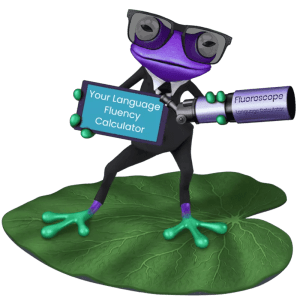Learn Advanced Business English Vocabulary Skills

The Crucial Role of Business English Vocabulary Skills in the Corporate World
English language learners are aware that English is the lingua franca of business. For most of them, it’s the main reason that they’re studying the language. You can be an employee envisioning lucrative employment in the business industry, an ex-pat stakeholder managing an overseas branch, or an entrepreneur seeking success in the international market. Whatever your role or capacity, there’s no denying that developing Business English fluency should be an ongoing practice.
Vocabulary is the basis of every spoken or written word; without it, you wouldn’t have the ability to express yourself. Business English is a specific area of the English lexicon. Because of the vast amount of specialized terminology used in the field of commerce, acquiring a broad range of vocabulary is essential. However, in addition to being familiar with technical terms, jargon, and corporate communication, you must increase your proficiency in vocabulary skills. Vocabulary skills include the ability to know the proper time and manner with which to use the language you’ve learned. In other words, you can choose the right vernacular for any given time and situation. In order to reach this linguistic level, it’s necessary to expand your background knowledge about various aspects of Business English. A deeper study of synonyms, context, word associations, and specific language can greatly improve aptitude in business vocabulary development.
6 Principles and Learning Strategies for Intermediate Business English Learners
Many non-native English speakers work for multinational companies or businesses where English is required for a big portion of their tasks. While it’s amazing that they have the chance to apply the language they’ve learned through their experience at work, it may not be enough to solely rely on. It’s especially difficult for those who are working closely with colleagues who are native English speakers. Without doing anything to supplement the knowledge they acquire through assimilation, their language skills will not remove and stagnate. This is the reason many of them enroll in ESL schools. Studying courses that focus on teaching English for Specific Purposes (e.g. Business English) can be a great stepping stone towards improving their overall English proficiency.
You may be one of them, and this amount of effort is commendable. However, if you’re serious about achieving extremely employable Business English skills, you’ll need to take advantage of opportunities to converse in real-world situations outside of work. That said, this area of contact is limited for many English language learners. So self-study is the route many have taken to augment their competence in English. They acquire what knowledge they can and make considerable effort to apply it when the opportunity arrives. It’s not only sensible but it’s also required. Self-directed learning is one of the optimum ways to accomplish your learning goals. A lot of students find themselves struggling to learn new vocabulary, so it’s important to create a comfortable environment where they can practice reading and writing. There are many popular strategies in English pedagogy that teachers recommend for personally-guided education. Here are some of the methods that can ensure you’re getting the best out of your language exploration.
1. Read for Background Knowledge
Incidental vocabulary learning describes learning words as a direct result of a love for reading. Reading a wide range of books leads to it, where there wasn’t a definite purpose to learn words, but ended up doing exactly that. The opposite of incidental vocabulary learning is intentional vocabulary learning, which is what happens in schools. The main focus is on learning words so materials and activities such as flashcards, matching words, filling gaps, and so on.
Language researchers have estimated that people need knowledge of at least 8,000-word families in the English language in order to reach comfortable reading levels. This number is too much for intentional reading alone. Furthermore, intentional vocabulary learning emphasizes understanding the dictionary meaning of words. Inversely, incidental vocabulary learning gains a richer and deeper understanding of words mainly because you can read them used in various settings. It can teach inference, collocations, connotations, and many other skills. This isn’t to say that intentional vocabulary learning isn’t as important. These two types of learning are complementary.
In business contexts, you’ll manage better at work if you read a lot. English students who are voracious readers end up being fluent and well-versed in an extensive range of topics. In the same manner, if you read business news, company profiles, marketing copy, blog posts about trade and commerce, and so on, you’d already be adequately equipped with a professional business vocabulary that you access anytime. You could be creating a business plan, replying to business correspondence, or securing affirmative results in a business negotiation. Chances are, you’ll have a bigger chance of knowing what to say than a non-native English speaker who never read for pleasure in their life.
2. Use Context Clues
Since English language learners generally encounter an immense number of words, they have a big chance to improve their skill in using context clues to make inferences about word meanings. But deciphering unfamiliar Business English vocabulary through its surrounding text is a highly developed English skill.
There are many types of context clues: definition clues, which define or describe the new word somewhere in the sentence, making it quite easy to know what it means; example clues where the new word is given examples; synonym restatements, or contrast; inference, and a few others.
Let me illustrate with “example” and “definition” context clues:
“Indentures such as express, implied, unilateral, and bilateral need signatures from both parties to take effect. Otherwise, these legal documents are useless.”
The word “indentures” is described as legal documents and given examples. Based on these clues, we know exactly what it means.
Indentures = legal documents = contracts.
3. Study Word Forms and Families
Word families are word groups derived from the same basic word. For instance, the words biology, biodiversity, and biography came from the word bio. Word forms, on the other hand, are the different forms of a word in different parts of speech. Employ is a verb, employee and employer are personal nouns, employment is a noun, and employable is an adjective. This method heightens your awareness of closely-related words. In time you’ll have a robust knowledge that will increase the power of your vocabulary.
4. Learn Connotation
Synonyms can be complicated. Some of them share the same literal meaning but suggest different implications. These implications are called connotations. Those two words are synonyms, by the way, which are quite close in meaning, but not as close to the word insinuation (which is also a synonym but funnily enough, has a slightly negative, well, connotation), and still farther to the word repercussion, which possesses a small similarity but is closer in meaning to the word consequence (although consequence has a neutral connotation, while repercussion is a little negative).
This brief demonstration of how complex connotation can be is proof of the proficiency level a student must have to master this vocabulary skill. It’s difficult but not unreachable. You can improve your ability to identify the connotations of words by continuous exposure to the English language. Tip: Read like there’s no tomorrow.
5. Create Word Associations
This is a terrific language activity you can do at home. Consider a word that’s familiar to you. Let’s take the word “business.” Allow yourself to take 2 to 5 minutes to write words associated with the subject. You might come up with associations such as work, money, boss, global, company, office, and so on. This will work better with a partner or a small group. You can turn it into a competition. The fantastic chance when working with a group is that you may dispute a word that you think has a very distant or zero connection with the primary word. The person who gave the example must then explain how the two words are associated.
6. Collect Specific Terminology in Language Sets
Besides creating the habit of accumulating workplace vocabulary, it’s also an excellent idea to focus on collecting phrases used for distinct functions, such as how to impart negative news to your boss or how to maintain politeness when making demands. You’ll be able to recall the correct expressions when you need to. This activity or exercise will make a tremendous contribution to your vocabulary and business skills and eventual fluency. Continue reading to learn more, as we have compiled a list of ways to soften language that would otherwise sound callous or inconsiderate if it didn’t follow the basic practices of business communication.
7 Ways of Using Language Softeners in Business Communication
Bad news is unavoidable. In any occupation, you will experience breaking some unfavorable information to a client, a coworker, or your boss. It’s important to always keep a diplomatic tone when doing so. Choosing the right words or structures can remove the unpleasantness of the information that you need to deliver. More importantly, the appropriate vocabulary in this scenario can uphold a level of deference. In the normal course of any business interaction, you need to maintain a sense of respect toward the people you’re working with. Using diplomatic language can be challenging even for native English speakers, but it might be a bigger struggle for English language learners who don’t possess the appropriate knowledge of vocabulary alternatives.
1. Softeners
- I’m afraid…
- To be honest…
- Unfortunately…
- With all due respect…
Examples:
I’m afraid they pulled the plug on the publication of our business textbooks.
To be honest, your performance in the past quarter didn’t meet the criteria.
Unfortunately, the delivery will arrive later than expected.
With all due respect, the decision to greenlight the second phase may have been a mistake.
2. Modal Verbs
Would, could, may, and might are examples of modal verbs that can temper the harshness or seriousness of a command or directive.
Examples:
- It would be nice to have been told in advance that this was happening.
- You could try to show up on time in the future.
- You may need to sell 50% more of your current record to reach the required average.
- They might do better if they toned down their enthusiasm in front of our Japanese clients.
3. Rephrasing a Negative Sentence
To avoid sounding particularly disapproving or unhelpful, use phrases such as “not able to”, “unable to”, or “not in a position to.” to substitute “can’t” or “won’t”.
Examples:
- I’m not able to meet you at this time.
- I’m unable to give you a bigger discount.
- Unfortunately, I’m not in a position to bid higher.
Sentences containing negative words like “unhappy” or “unproductive” can be replaced with their positive equivalents and modified with an adverb such as “completely”, “entirely”, or “totally”.
- I don’t find their team entirely productive.
- I’m not totally happy with these business types coming in here all the time.
4. Qualifiers
- a bit/a little/a little bit
- one or two
- slight/slightly
Examples:
The accounting team is a little bit behind schedule with their review.
I see one or two problems with the ad campaign for our flagship store.
It will cost slightly over the proposed budget.
5. Negative Question Forms
Use indirect suggestions to take the forcefulness out of your tone. Consider the following sentence:
We should restructure the validation process to save time.
It’s probably okay to use this with a coworker, but speaking this way to a manager or a client sounds very direct and officious. Adding “not” and changing the syntax into a negative question will sound more polite and less dominant. Use “couldn’t”, “shouldn’t”, and “wouldn’t.”
Shouldn’t we restructure the validation process to save time?
6. Using the Past Continuous Tense
Another way to sound diplomatic is by using the past continuous tense. It adopts a tentative and suppositional tone that makes it indirect and more polite.
Examples:
- I was thinking we need to hire a different accounting firm.
- They were planning to meet with you later today to go over the budget.
- We were hoping to talk to you about the team’s bonus for last week’s marketing drive.
7. The Passive Voice
A great way to avoid confrontation is to use the passive voice, especially if the subject matter is critical or accusatory. The aim is to redirect blame or responsibility from the subject.
Examples:
- It was understood that our commercials will be shown after this segment.
- I thought the deal was finalized two weeks ago.
- It was promised that the packaging costs will be lowered to this amount.
15 Business English Vocabulary for Advanced Learners
English language learners know the value of writing vocabulary lists in a personalized notebook. You should start keeping one if you haven’t already. This is a valuable method that can help you remember and review vocabulary better. The more years and experience you acquire as part of the labor force, the greater your language exposure. So hearing and reading familiar English terminology will be a normal part of your job. Some people have the ability to learn vocabulary naturally. Even so, it’s best practice to enhance your background knowledge whenever the opportunity strikes. Here’s another list to add to your collection.
Words
1. Diversify – enlarge the range of products or fields of operation. Ex. We will diversify internationally over the next decade.
2. Eligible – satisfying the proper conditions to qualify. Ex. You’ll be eligible for the retirement fund after two years.
3. Greenlight – allows a project or event to start or happen. Ex. They greenlit the theme for the New Year’s party last night.
4. Groundbreaking – inventive or innovative. Ex. His recent architectural exhibit was groundbreaking.
5. Infringement – the act of breaking agreements. Ex. You will commit an infringement if you don’t give a two-week notice.
6. Loophole – occurs when the law or rules are unclear or lack some information. Ex. Some millionaires avoid paying taxes by exploiting loopholes in tax laws.
7. Obscurity – the state of being unknown or unimportant. Ex. It takes a lot of work for a small or medium enterprise to beat obscurity.
8. Substantiate – provide evidence to prove the truth. Ex. We can’t substantiate these figures without doing further research.
Phrases
9. Corner the market – dominate a particular sector. Ex. They started to corner the market in January.
10. Foregone conclusion – a result that can be predicted with certainty. Ex. The result of the business plan was a foregone conclusion.
11. Gray area – something undefined and not easily categorized. Ex. I asked our lawyers if it was legal and they said it was a gray area.
12. In the black/in the red – “in the black” means making a profit; “in the red” means “operating at a loss.” Ex. Our small business was in the red last year and we worked so hard until it was in the black again.
13. Lose ground – to lose some type of advantage. Ex. If we don’t secure that deal in Bangkok, we will lose ground in our projects in Southeast Asia.
14. Pull the plug – prevent something from happening. Ex. Our boss almost pulled the plug on the project but he’s glad he didn’t.
15. Viable option – workable alternative. Ex. Letting them use the company car for a day is a viable option.
Use LillyPad.ai to Boost Your Advanced Business English Vocabulary Skills
A superb complement to your English language studies is using an online learning platform. LillyPad.ai is the best software for ESL learning in the market today, providing the best solutions to any of your learning objectives. The platform is supported by ESL specialists who have decades of experience in teaching ESL around the world and are experts in learning methodology and curriculum design. Thanks to them, the creation and curation of the learning materials we offer our members are far superior to our competitors. Our content exceeds industry standards in effective English instruction and learning methods. LillyPad.ai members are granted access to a huge library of real-world resources for all English skills, including pronunciation and vocabulary. They can also take advantage of an exclusive, customizable, and interactive page where they can store their favorite lessons, resources, and games, and keep track of their progress. LillyPad.ai has an enormous collection of Business English lessons for every linguistic requirement in the corporate world. Strengthening your vocabulary skills won’t be a problem. Along with your passion, commitment, and hard work, you’re in for a remarkable and extremely rewarding journey.
Conclusion
For English learners to develop their proficiency in Business English, they should learn how to apply appropriate strategies to enhance their acquisition of business terminology and vocabulary skills. They should also increase their understanding of business concepts, fortify their background knowledge of various business contexts, and master the art of inference by learning connotations, prefixes, suffixes, word associations, and so on. Moreover, they should try to get into the habit of reading and foster a genuine interest in English vocabulary. They must learn the methods of using the proper language in any given situation at work, and continue the practice of collecting new vocabulary in a personal notebook. By practicing these techniques regularly, English language learners will eventually reach an advanced stage of English language skills and find success in their careers.
Frequently Asked Questions
The fundamental strategies aren’t that much different from the methods learners use for General English: read, watch, and listen to business-related media. And when you can, talk and apply the vocabulary words you’ve learned. A time-consuming but high-yield practice is to have a personalized vocabulary notebook where you list all the words you’ve learned. Be sure not to just write in the notebook and then forget about it. The principle is to learn actively and with purpose.
We’ve covered self-study stuff briefly. Let’s talk about formal Business English lessons. Programs teaching Business English belong under the larger umbrella of English for Specific Purposes. As you would expect, enrolling in a course will do wonders for your vocabulary. The topics in these language programs usually cover intensive content. They simulate a business environment where you can practice real-world conversations, attend business meetings, watch business videos, read business news, and so on.
Self-directed instruction and formal training should go hand-in-hand to maximize the unique learning opportunities they both offer. If you’re already working, you’re lucky to interact in a business environment. Still. don’t take it for granted. Listen to the common language used at your workplace and note them down. Here’s where the vocabulary notebook can be handy.
Advanced Business English is the highest proficiency a Business English language learner can reach. A student with this level has top-tier fluency. (That being said, fluency doesn’t mean they sound like native English speakers. You can be fluent and still keep your mother tongue’s accent.) They’d be able to go through common business idioms like water. They’d be well-spoken and have at least some knowledge in a number of business fields. They probably have some skills in business management as well.
When it comes to the subject and content, advanced Business English covers all business types and uses language from every industry. This level of learning involves complex methodology in business vocabulary development. There’s a lot of training for writing using standard business formats, and a lot of speaking topics about all business fields. Moreover, there’s also some learning about cultural communication skills in business, where language fluency and accuracy are meshed with real-world knowledge to train students in key Business contexts.
There are actually 4 types of vocabulary: speaking, reading, writing, and listening vocabulary. So as you can see, any activities you do to improve these four skills also enrich your skills in vocabulary. As for remembering advanced words, your emphasis should be on repetition. Learn a set of key business words and write them in a notebook. Think of word associations and write those as well. Then think of word forms, phrases, etc. Spending this much time on the same set of words will allow you to retain them better in your memory. Review the techniques and principles in this article and incorporate them into your studies.
The operative term is in your question: speak. Vocabulary is the framework of all languages, but business textbooks won’t teach you how to talk (in the literal sense of the word, that is). Many English language learners preempt their chances to interact in English because they are either shy or afraid of making mistakes. This is the wrong attitude. Anyone who is serious about improving their English skills cannot afford to stay quiet. You can’t wait until you believe your skills are good enough before you talk. Talk now. You can’t watch business news, TV shows, or online videos and swallow the language that you’ve absorbed until they sink into oblivion. Talk now. You can’t spend hours upon hours learning business vocabulary development and then shrug when someone speaks to you in English. Talk now. Because you can learn rigorously until you’re covering advanced business vocabulary, but you’ll lose it all if you don’t speak.
Now, let’s posit that you do talk and you’re only interested in speaking like a “professional.” Certainly, each professional is different from the others, and maybe each person’s opinion of what a professional is differs greatly, so those aspects of business might be a bit vague. But generally, speaking a professional always assume a respectful but authoritative tone. When serving customers, addressing their boss, or congregating with their coworkers, a professional used the right words and manners of talking.
Lastly, if what you meant by professional is a non-native English speaker, then repetition and mimicry have to be exercised. You’ll need to have a good ear to listen to the native accent and the same level of coordination to follow the sound. Then apply them when you’re actually conversing in English. Elicit feedback and be receptive. Prepare for truths you don’t want to hear. But remember, if you’re running across the business field, you’re bound to trip. Get back up again and keep learning.
If you’re working for a multinational company or even a local one where English is required on the job, you should already have the advantage of first-hand experience. You’ll learn a lot of business-related vocabulary at work, just from reading emails, reposts, notices, and memos. Learning doesn’t stop there, though. You should activate the language you’ve absorbed by using it or learning actively.
However, if you’re still a student who’s thinking of beginning a career in international business, studying vocabulary is how you’ll learn business-related terminology. But it’s important to study valuable content at home as well. Read business news, watch business videos, and consume anything related to corporate communication. You don’t have to be an employee to develop business skills.
There are aspects of business that are unique to every industry. So, figure out in which industry job you want to work in the future and study the jargon of that profession. Architects will have a set of expressions that nurses won’t use. Beyond that, also determine what kind of job you want to do. If it’s a position that requires a lot of writing, you shouldn’t focus on speaking skills. Writing is different from verbal communication. You don’t say “yours truly” after a face-to-face conference.

Learn from History – Follow the Science – Listen to the Experts
What’s the one thing that makes LillyPad so special? Lilly! She is a personal English tutor, and has people talking all over the world! Lilly makes improving your English easy. With Lilly, you can read in four different ways, and you can read just about anything you love. And learning with Lilly, well that’s what you call liberating!
For learners of all ages striving to improve their English, LillyPad combines the most scientifically studied and recommended path to achieving English fluency and proficiency with today’s most brilliant technologies!
Additionally, the platform incorporates goal-setting capabilities, essential tracking & reporting, gamification, anywhere-anytime convenience, and significant cost savings compared to traditional tutoring methodologies.
At LillyPad, everything we do is focused on delivering a personalized journey that is meaningful and life-changing for our members. LillyPad isn’t just the next chapter in English learning…
…it’s a whole new story!
Do you want to improve your English? Visit www.lillypad.ai.
Follow us on Facebook or Instagram!

William Landry
William is a professional English and ESL teacher with over 15 years of experience. He has taught students of all ages, from children to business executives, and has worked with ESL learners from all over the globe. With a degree in English Education, William has developed curriculum for learners of all levels and interests. He is passionate about helping people learn English effectively and shares his knowledge with the LillyPad community. When he’s not teaching or writing, William enjoys spending time with his wife and two young children.












